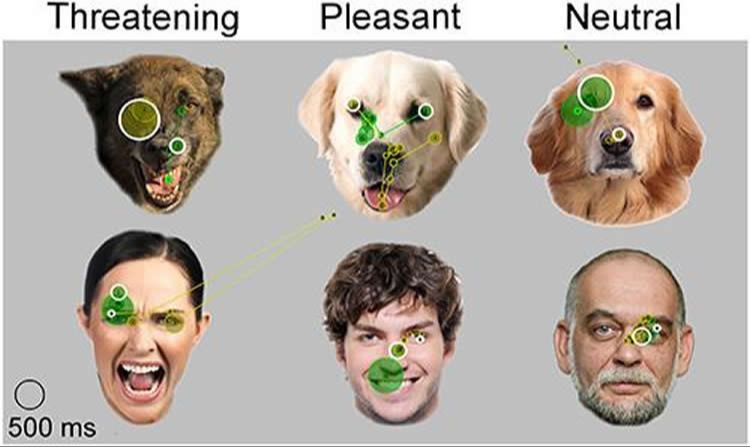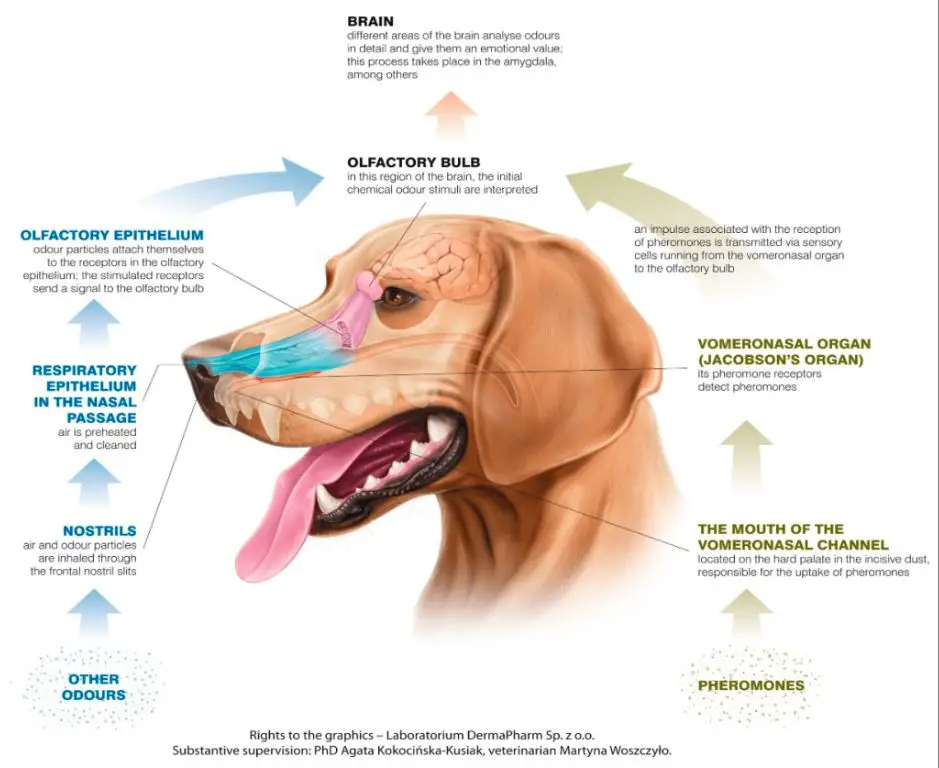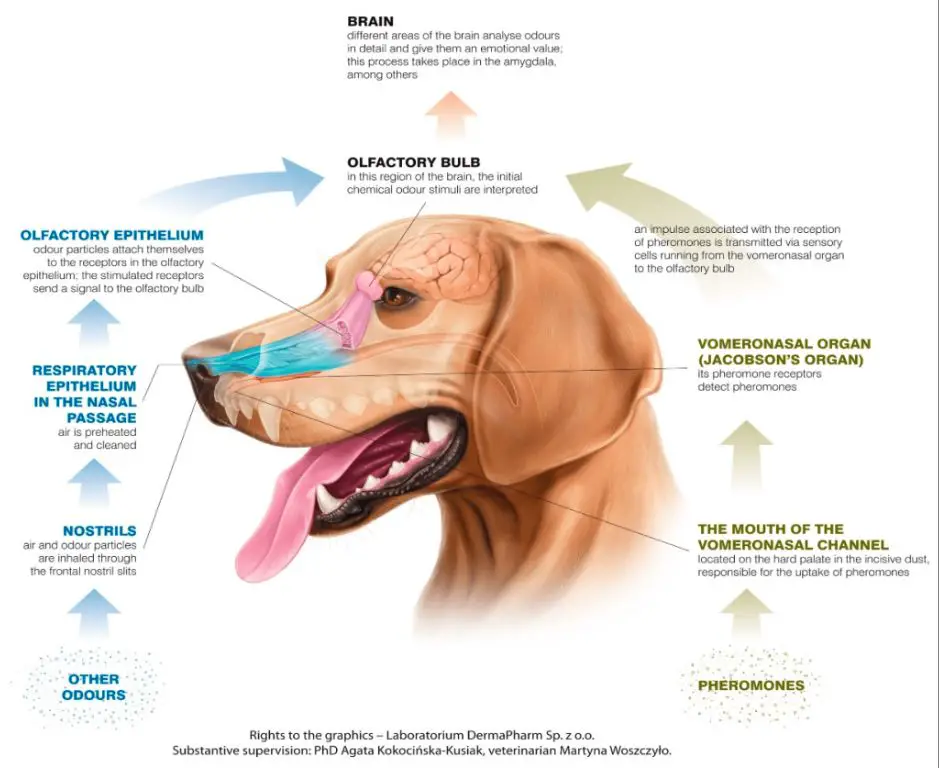Dogs Can Sense Emotions
Dogs have an incredible ability to sense human emotions like happiness, sadness, fear, and more. This is due to their powerful sense of smell and ability to detect visual/auditory cues. According to research from RSPCA, dogs can recognize emotions in facial expressions and distinguish between a crying and laughing human through scent alone.
Studies show dogs may even secrete “happy tears” when reunited with their owner after an absence. Their mood tends to mirror their human’s – if you’re happy, they’re happy. If you’re anxious or sad, they pick up on this too. Dogs respond differently to crying versus laughter or excitement. They will often try to comfort their humans during emotional distress by nuzzling or licking them.

Overall, canines have an uncanny talent for sensing human emotions. Their evolutionary bond with humans makes them highly sensitive to our nonverbal cues and energy. They truly feel what we feel.
Dogs Detect Changes in Behavior
Dogs are remarkably perceptive and attuned to even the most subtle changes in human behavior and body language. Research has shown that dogs notice subtle differences in your tone of voice, facial expressions, and overall mood and demeanor that can signal underlying emotions or changes in your health.
For example, dogs may detect signs of sadness, anxiety or fear through slight changes in your eyes, expressions or vocalizations that humans wouldn’t notice. Some studies have found dogs can detect anxiety in people simply through smell. This is likely due to the ability to sniff out chemical changes caused by shifts in mood or health.
Dogs also keenly perceive shifts in your normal patterns of behavior and daily routines. If you start sleeping more, engaging less, or showing changes in appetite, dogs notice these irregularities which can indicate illness or emotional struggles. The strong social bond between dogs and humans allows dogs to associate certain behaviors with specific health states or moods.
Overall, dogs have an amazing capacity to sense the most subtle behavior changes. Their perception of the human emotional state is an important part of the deep connection dogs share with their human counterparts.
Dogs Sniff Out Illnesses
Dogs have a remarkable sense of smell that allows them to detect diseases in humans by sniffing out subtle changes in odors. According to research, dogs can be trained to detect diseases like cancer, malaria, and diabetes by smelling bodily fluids and breath samples. This is because disease causes metabolic changes in the body that emit unique volatile organic compounds. Dogs with their powerful noses can pick up on these compounds.

One study published in PMC found that dogs could identify malaria infected children with average sensitivities of 82-86% by sniffing socks worn by the children. Their accuracy was comparable to rapid diagnostic tests. Dogs have also been trained to detect ovarian cancer from blood samples and prostate cancer from urine samples at over 90% accuracy.
Since dogs can sense these diseases earlier than traditional diagnostic methods in some cases, using medical scent detection dogs is a rapid, non-invasive way to screen for certain illnesses. With further research into dog training and biomarkers, dogs may be able to complement standard medical tests to help diagnose diseases sooner.
Dogs Sense Pregnancy
Dogs often notice when their owner is pregnant before she does. They can smell hormonal changes that happen early in pregnancy. According to the AKC, dogs can detect these changes as early as four weeks into gestation, sometimes even sooner. Their keen sense of smell allows them to pick up on the increase in estrogen and progesterone.
Some signs your dog may know you’re pregnant before you have even taken a pregnancy test include: becoming more protective and affectionate, resting their head on your belly, sniffing more around you, and even vomiting (likely due to hormone changes).
While the exact science is still not fully understood, many pregnancy experts and veterinarians agree dogs can sense changes in the womb. Their early detection is likely thanks to their incredible ability to smell.
Sources:
https://www.akc.org/expert-advice/home-living/can-dogs-sense-pregnancy/
Dogs Detect Seizures
Some dogs are trained to detect oncoming seizures in humans. They notice subtle signs like changes in behavior, scent, or appearance that humans often miss. According to research, some dogs may be able to smell chemicals released by the body at the onset of a seizure[1]. These “seizure alert” dogs can give their human companions advance warning of an impending seizure through attention-getting behaviors.
However, the ability for untrained dogs to detect seizures is less studied. While some anecdotal reports claim dogs can sense seizures before they happen, more research is needed to determine if this is a real phenomenon or just coincidental[2]. Either way, a dog’s attentiveness and companionship can provide comfort and security to those living with epilepsy.
Dogs Feel Your Energy
Dogs have a remarkable ability to sense human emotions and energy. According to experts, dogs can pick up on subtle changes in human behavior and scent that allow them to detect shifts in mood. For example, when a person is angry or anxious, their body releases different pheromones and subtle vibrations that a dog can perceive. Dogs also read human body language exceptionally well. If someone is feeling sad or stressed, a dog may notice slumped posture, lack of eye contact, or other visual cues that allow them to respond with comfort and affection.

Studies show that dogs not only sense human emotions, but they also respond to and mirror them. Research by Dr. Friederike Range indicates that dogs are sensitive to inequality and will react to sensing an unfair situation. Dogs also appear able to detect more positive energies and emotions, responding with happy behaviors when they pick up on human joy or laughter. Overall, a dog’s ability to understand emotions is one more way we can interpret their empathy and emotional intelligence when it comes to relating to humans.
Source: https://todogswear.ca/blogs/t-o-dogs-blog/16-things-your-dog-knows-about-you
Dogs Read Body Language
Dogs are extremely skilled at reading human body language and posture to sense intentions. According to research from https://www.poop911.com/blog/how-dogs-read-human-body-language/, dogs recognize facial expressions such as smiling or frowning. Dogs focus more on our tone of voice and body language than our actual words. They can detect subtle changes in stance, gaze, breathing rate, and muscle tension that reveal how a person is feeling.
For example, if you’re nervous or afraid, your dog may notice a stiff body, rapid breathing, sweaty palms, a higher-pitched voice, or avoidance of eye contact. If you’re angry, your dog reads tight jaw muscles, pointed fingers, clenched fists, and aggressive stances. Happiness displays as a relaxed posture, soft voice, and slow, deep breathing. Dogs rely on reading your current mood and intent through your nonverbal signals more than the meaning of your words.
Dogs Hear Changes
One of the most remarkable things about a dog’s hearing is their ability to detect even the most subtle changes in sounds. Dogs can hear slight variations in tone of voice, footsteps, breathing patterns and more that humans simply cannot perceive (AKC).
For example, dogs are able to hear the difference when their owner returns home at the end of the day compared to when a stranger comes to the door. They recognize the unique sound of their owner’s footsteps, jangling keys, voice tone and breathing (Nylabone). Dogs can also detect changes in their human’s breathing that may indicate something is wrong.
This acute sense of hearing allows dogs to pick up on nuances and patterns that help them understand and respond to their environment. It’s why dogs seem to “just know” when something is different with a family member’s routine or health.
Dogs Notice Visual Cues
Dogs are very observant and notice minute visual changes signaling emotion. They watch us intently and learn what certain gestures, facial expressions, and body language mean. For example, dogs can tell when you’re happy or sad based on your smile or frown. They also notice subtle signs like raised eyebrows, dilated pupils, tense shoulders, and more. These visual cues help dogs understand our mood and intent.
According to the ASPCA, dogs rely on vision to perceive much of the world around them. They are very sensitive to eye contact, staring, and even small movements of the eyes. Some research suggests dogs may also be able to detect subtle facial movements indicating different emotional states. Their ability to read visual cues helps them effectively communicate and bond with humans.
Additionally, dogs pick up on visual signals we may not even be aware we’re displaying. Small changes in body posture, muscle tension, breathing rate, and facial expressions can give away how we’re feeling. By picking up on these visual cues that humans also use to communicate, dogs gain insight into our inner emotional state.
Dogs Sense the Supernatural?
Some believe dogs can detect spiritual presences, ghosts, psychic phenomena, and things that are not perceptible to humans. There are many anecdotal stories of dogs staring, barking, or reacting to something their owner cannot see. While we do not have scientific proof that dogs can sense ghosts, spirits, or the paranormal, their superior senses may allow them to detect visual, auditory, and olfactory stimuli beyond human capabilities.
For example, dogs have a wider field of vision and can see in low light better than humans (Source). This means they may notice subtle visual changes and movements that we miss. Their hearing range also exceeds ours, allowing them to potentially pick up on faint sounds we cannot detect. Additionally, their powerful sense of smell enables them to discern scents we do not notice.

Skeptics argue that a dog’s strange behavior around seemingly “nothing” can usually be explained by their heightened observational skills. However, some believe their extra-sensory perception allows them to be more in tune with the spirit world. While the existence of ghosts and the paranormal remains scientifically unproven, a dog’s perception and reaction to invisible stimuli will likely continue to fascinate and puzzle us.